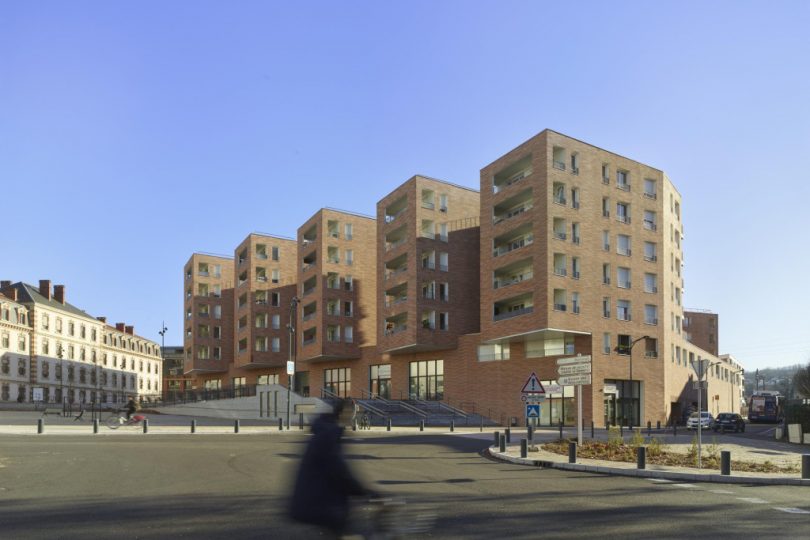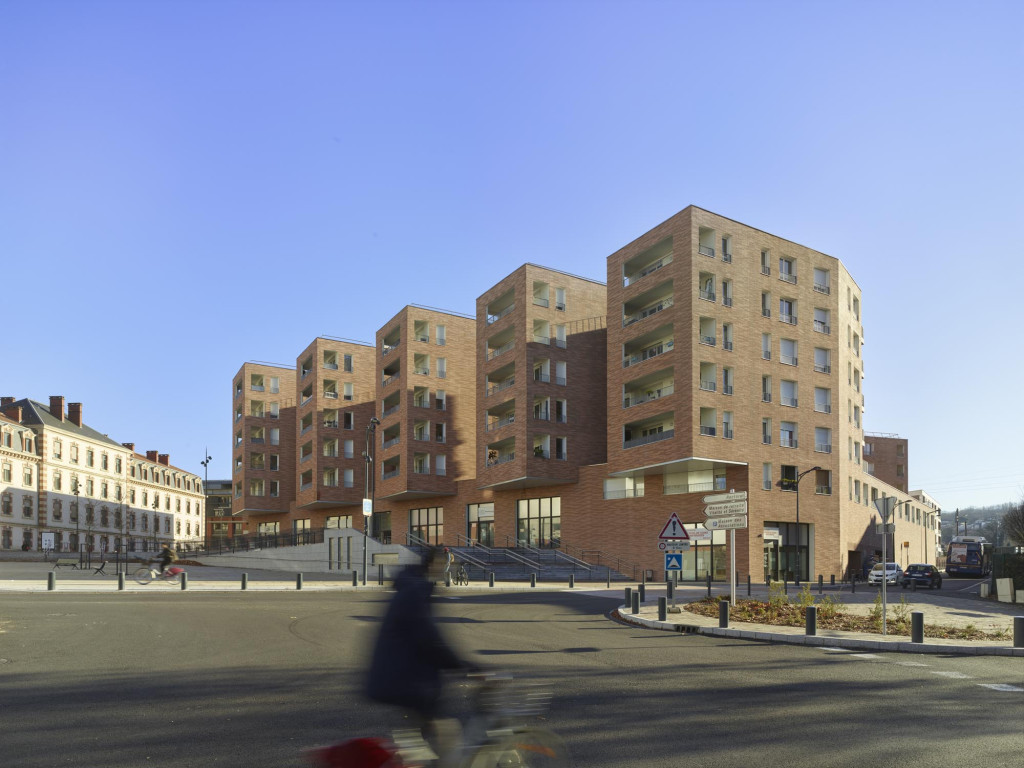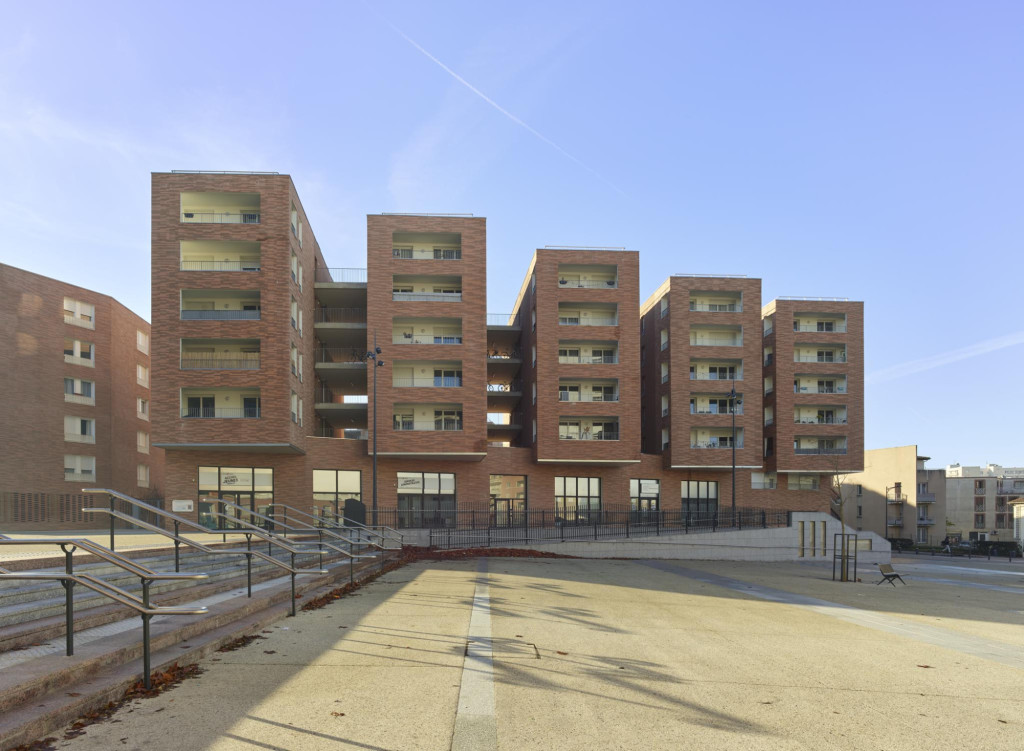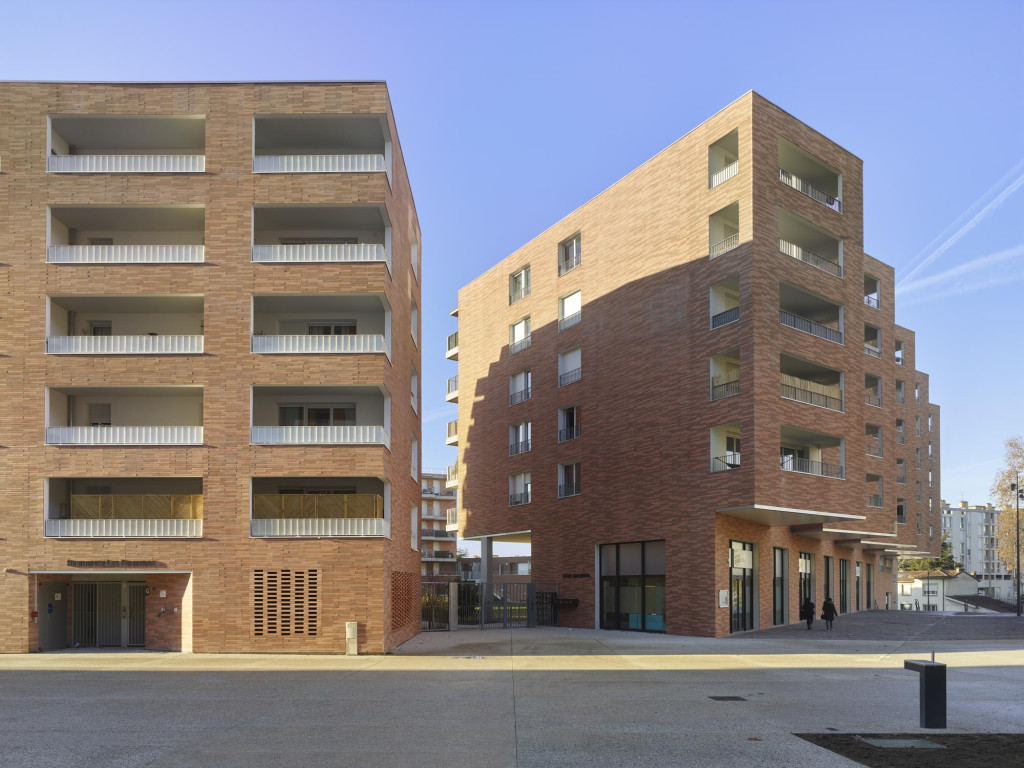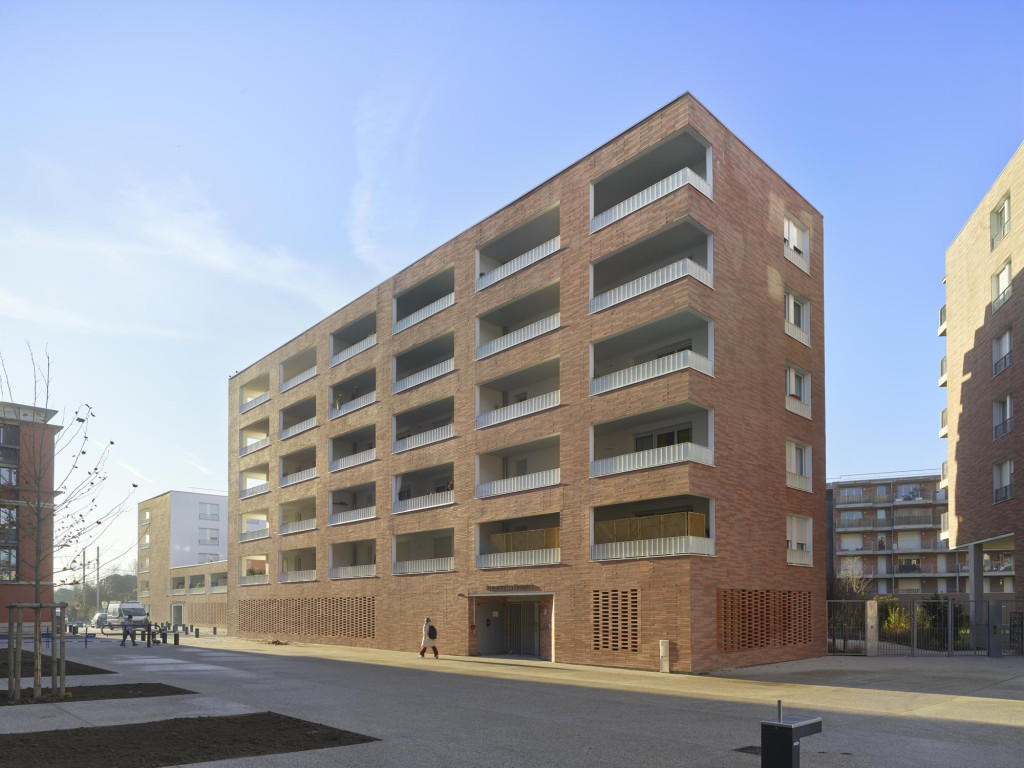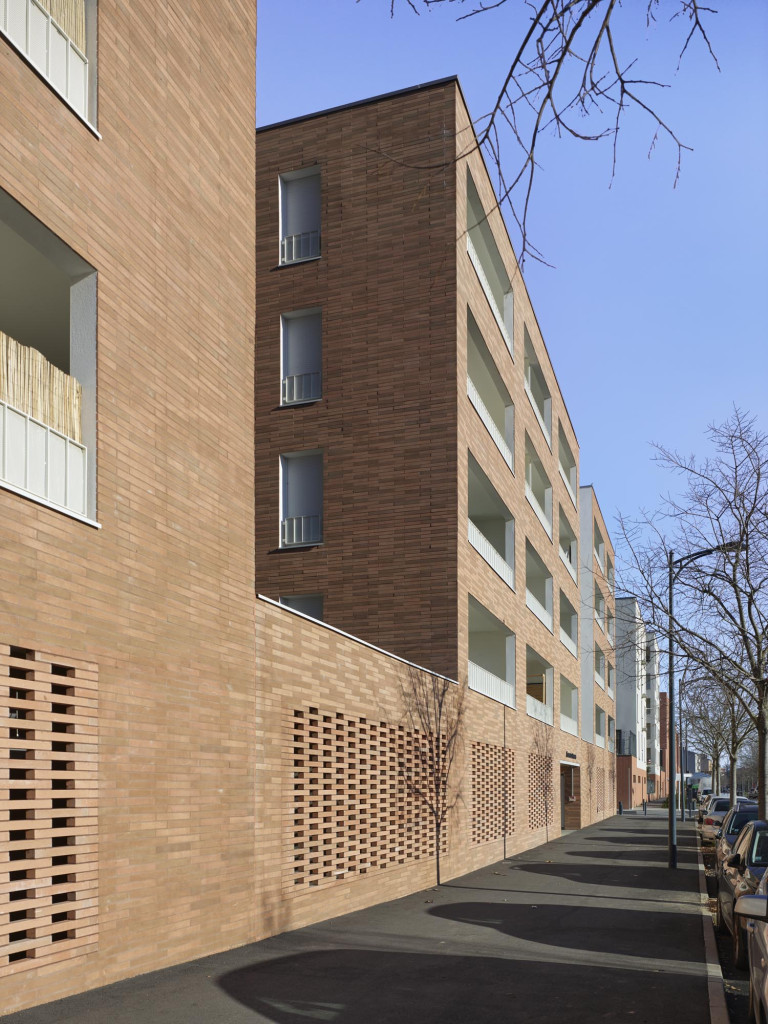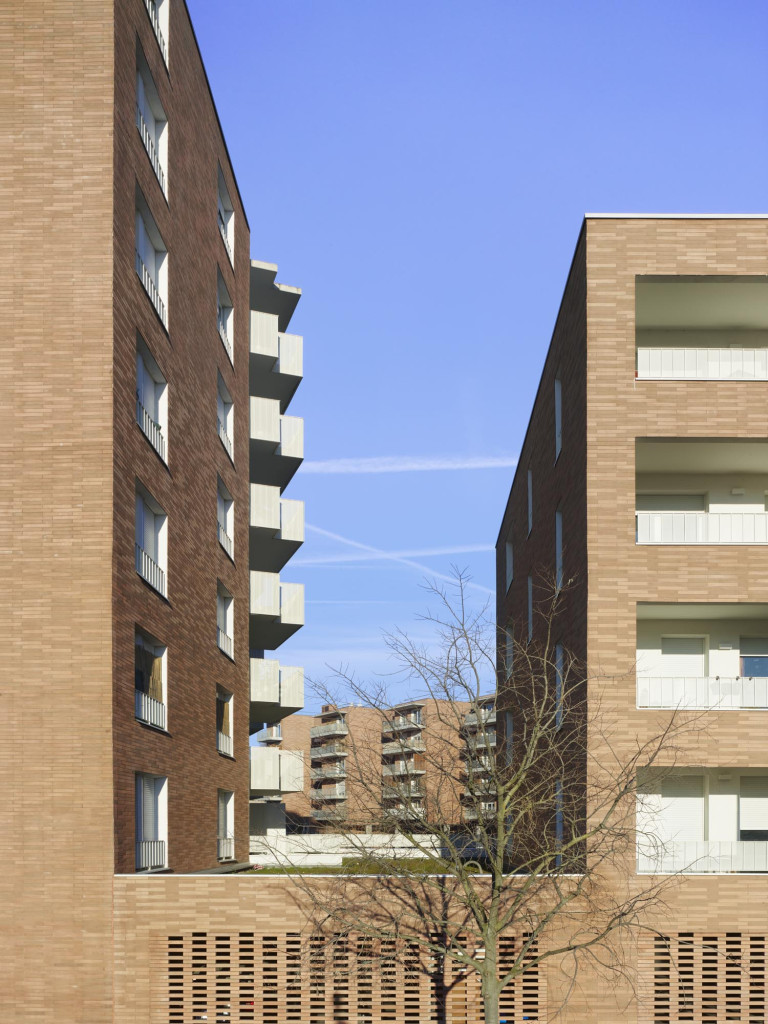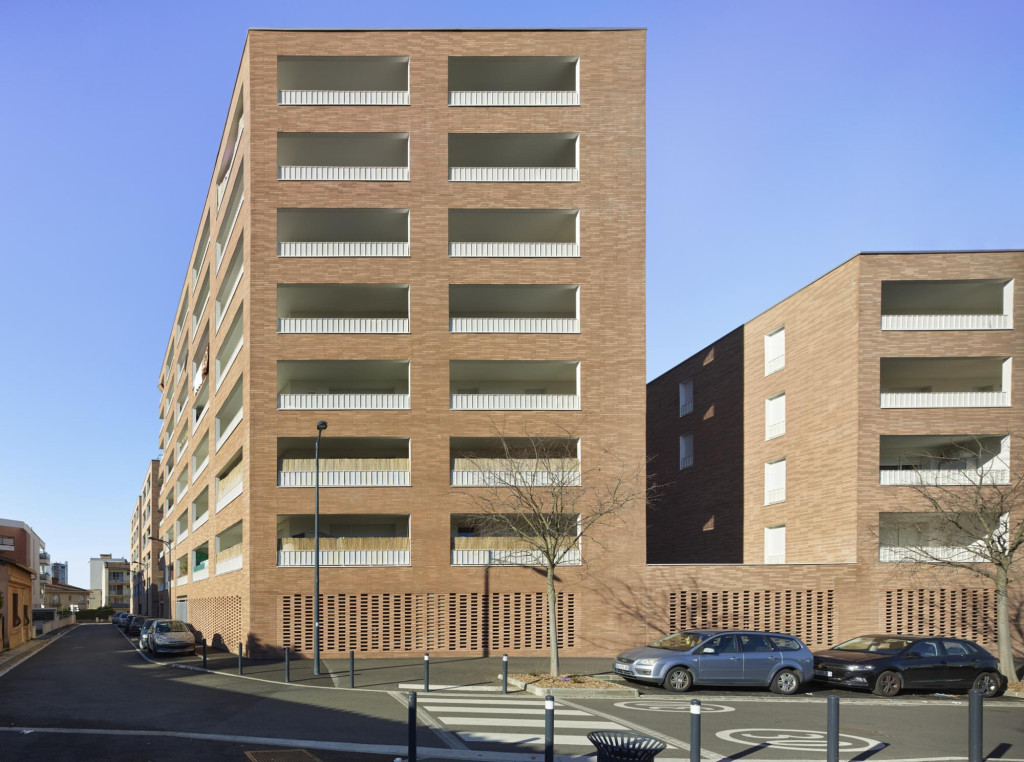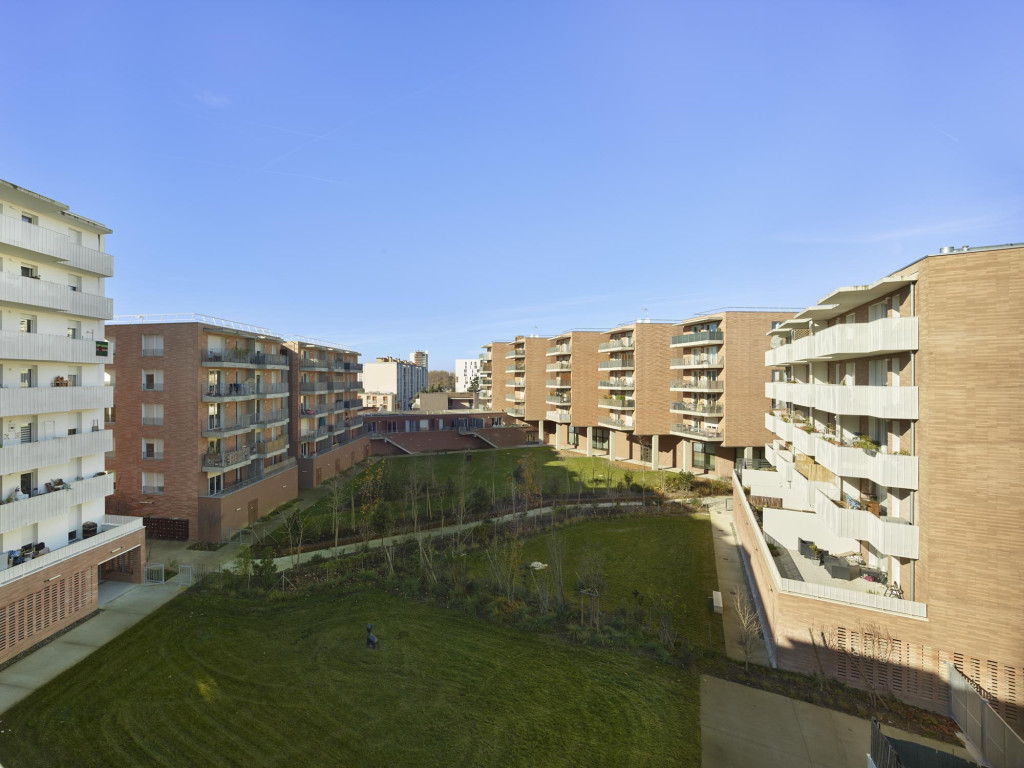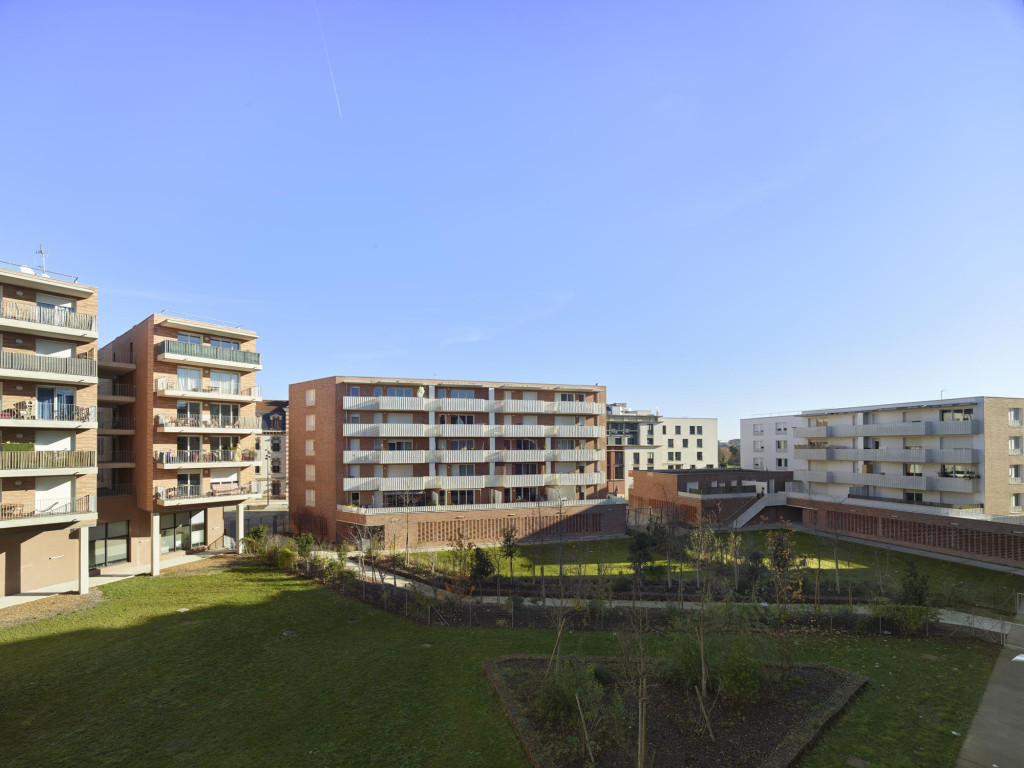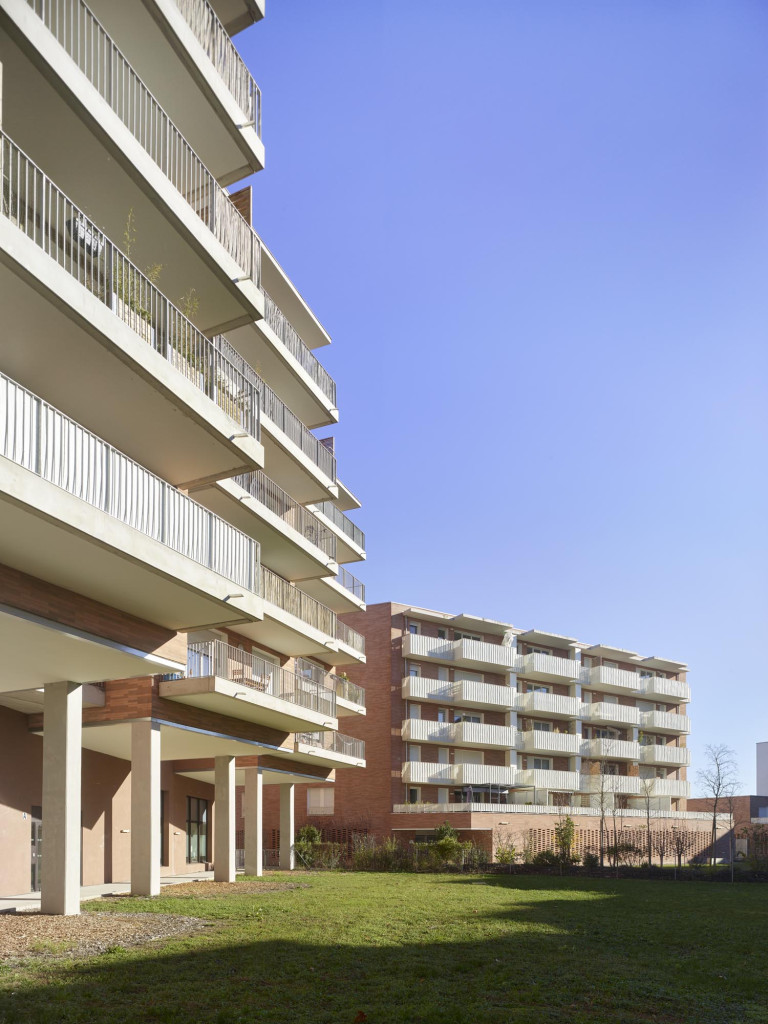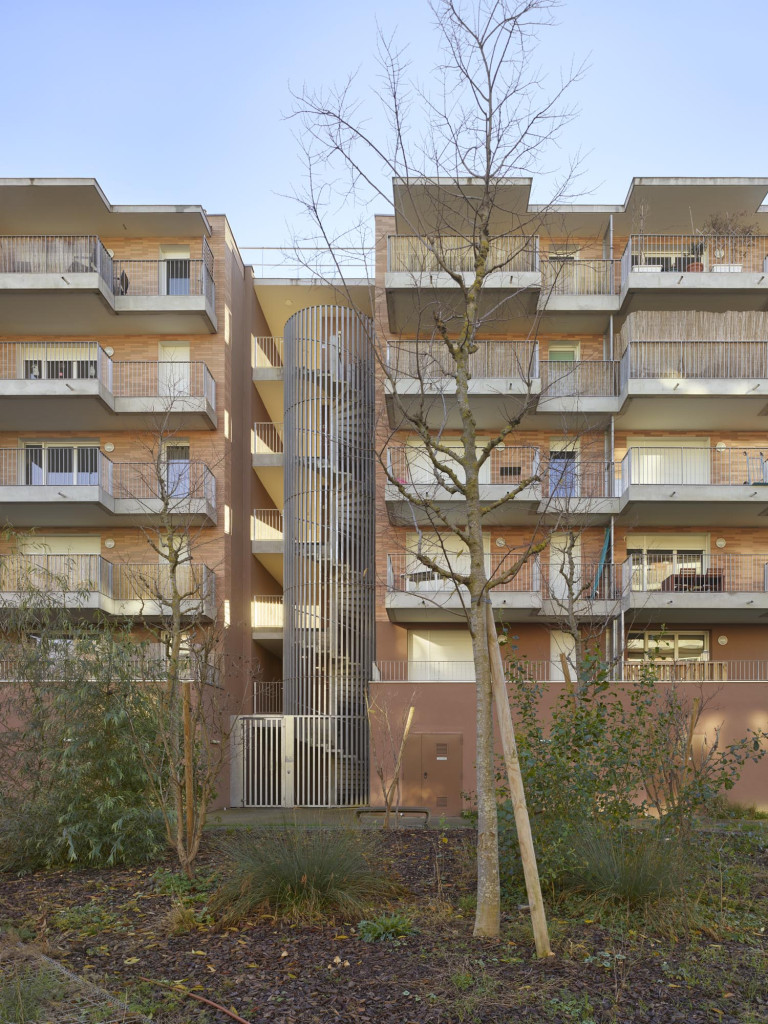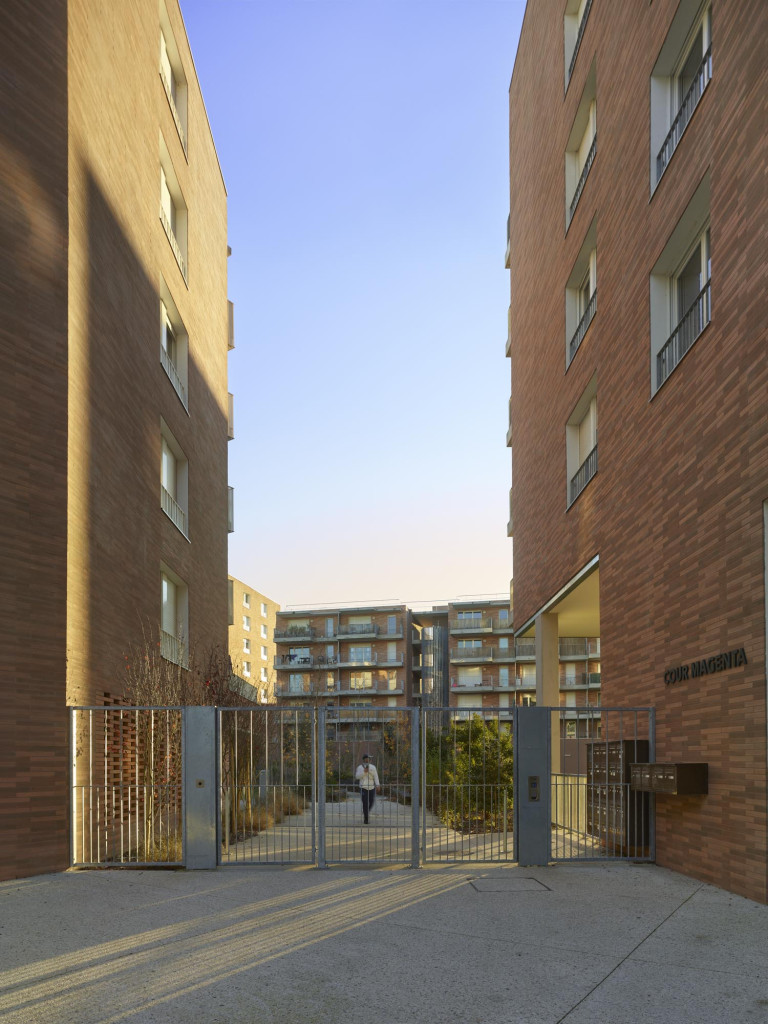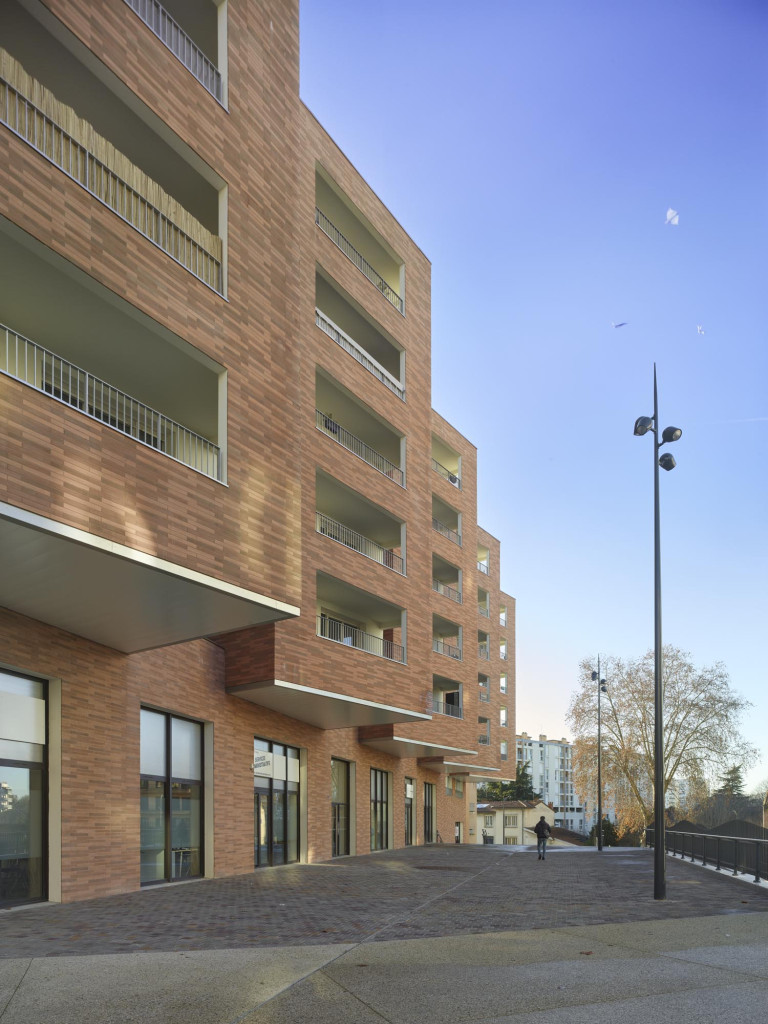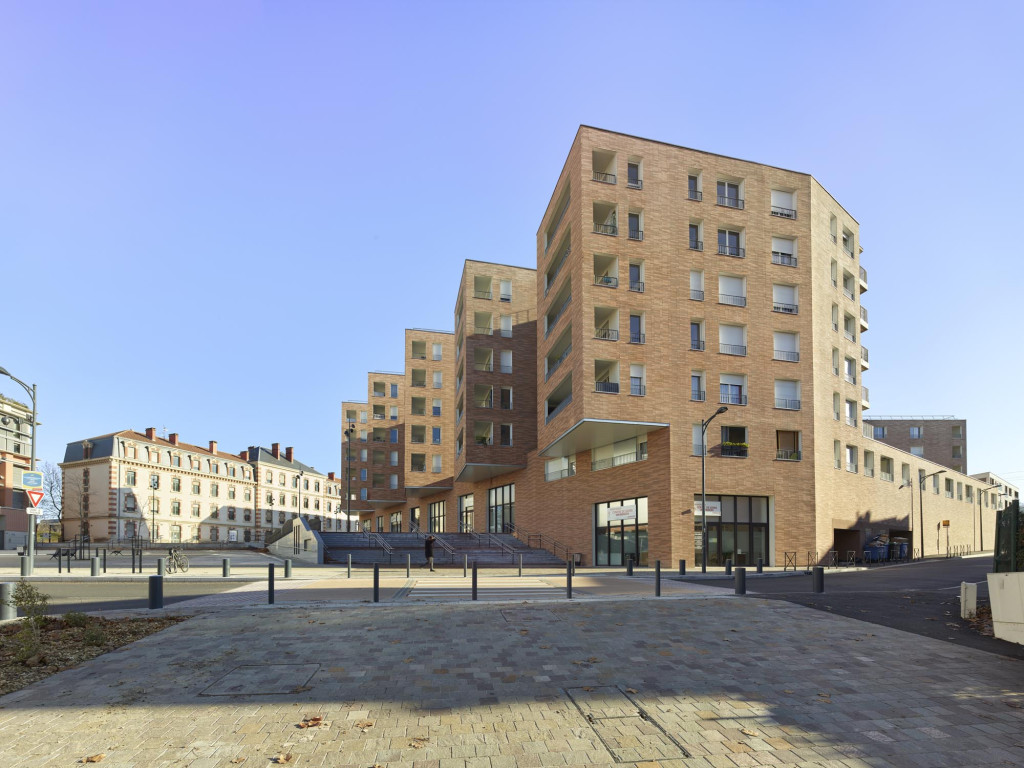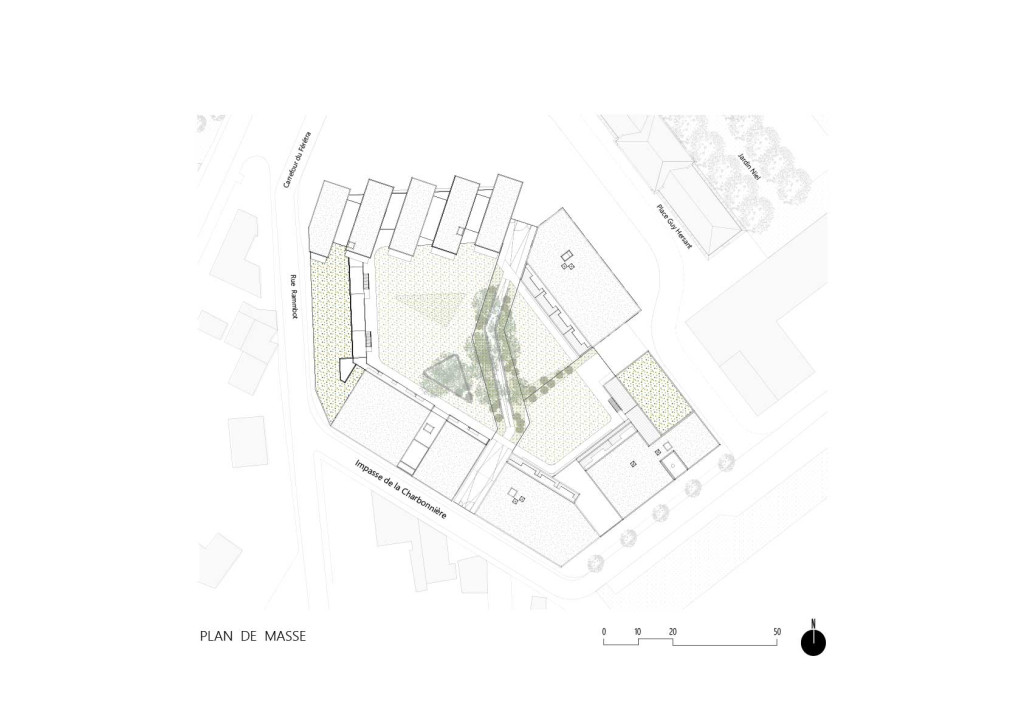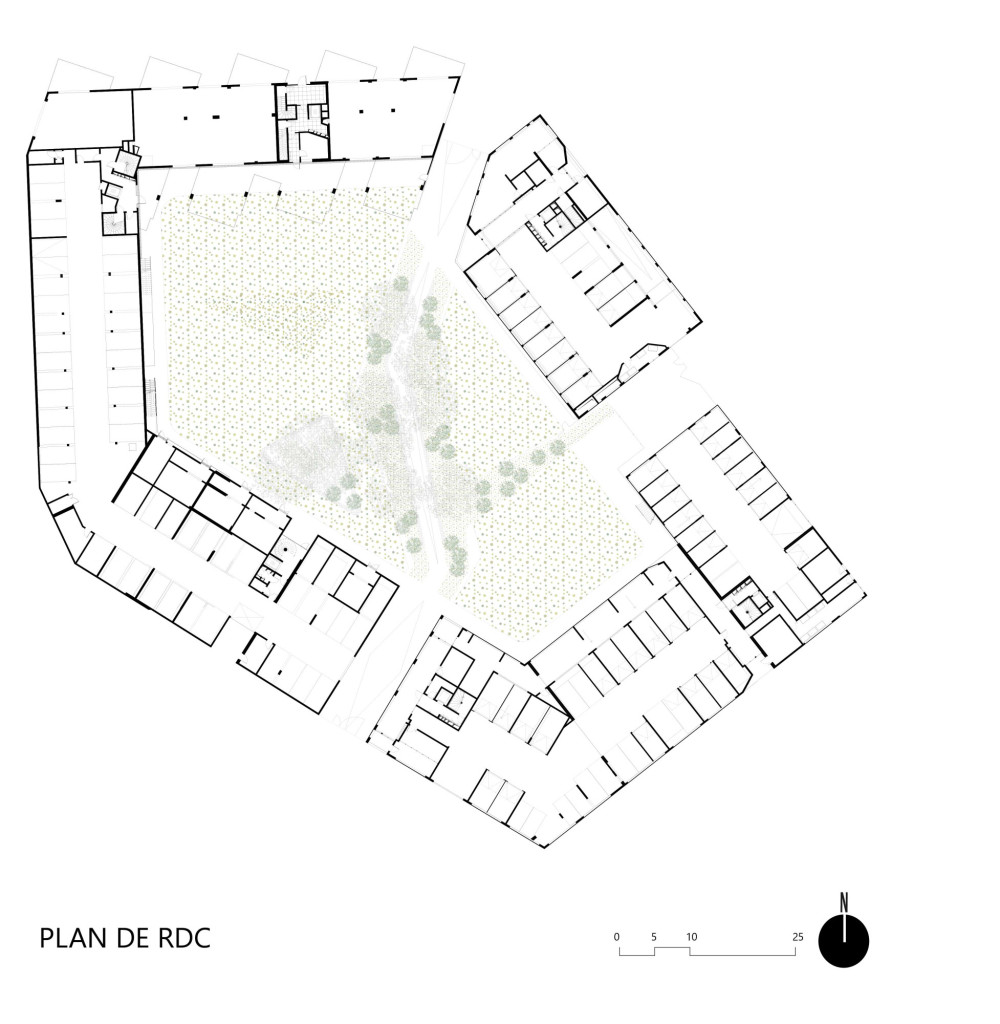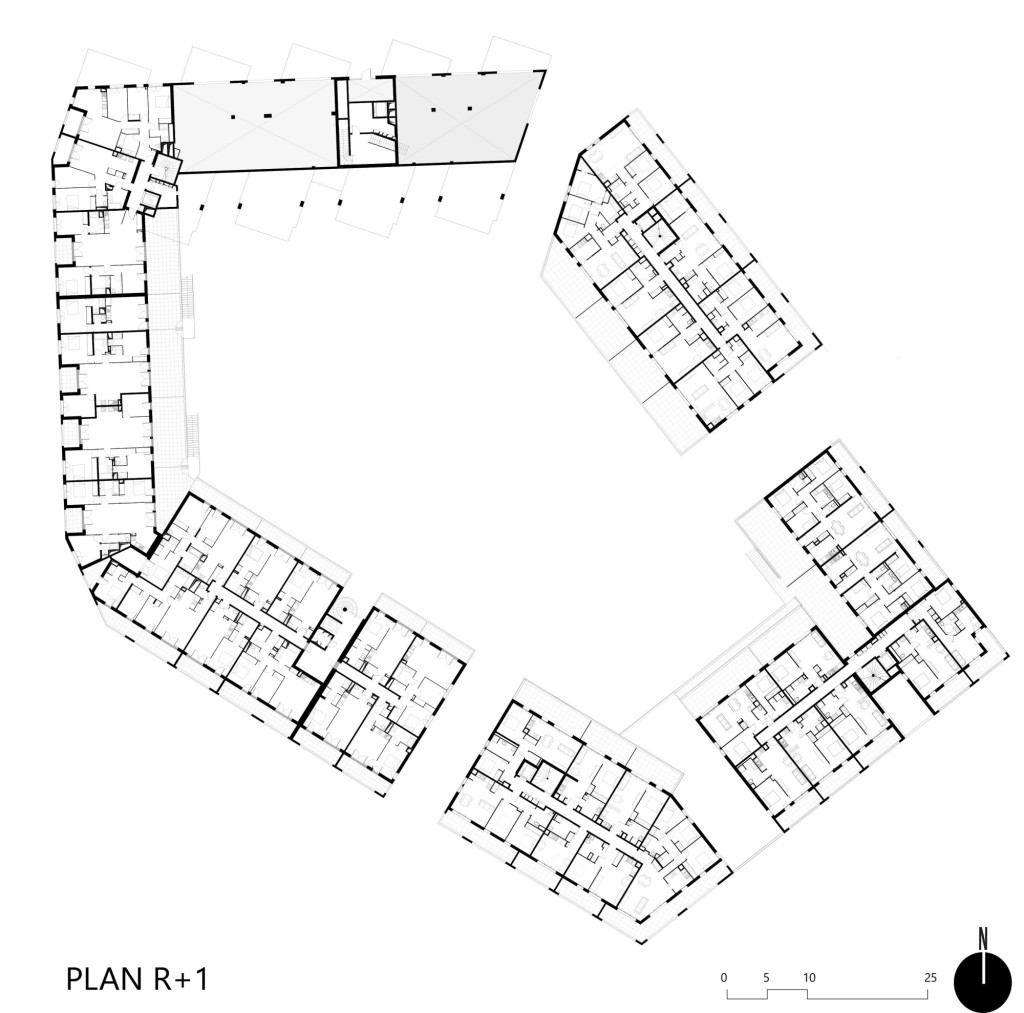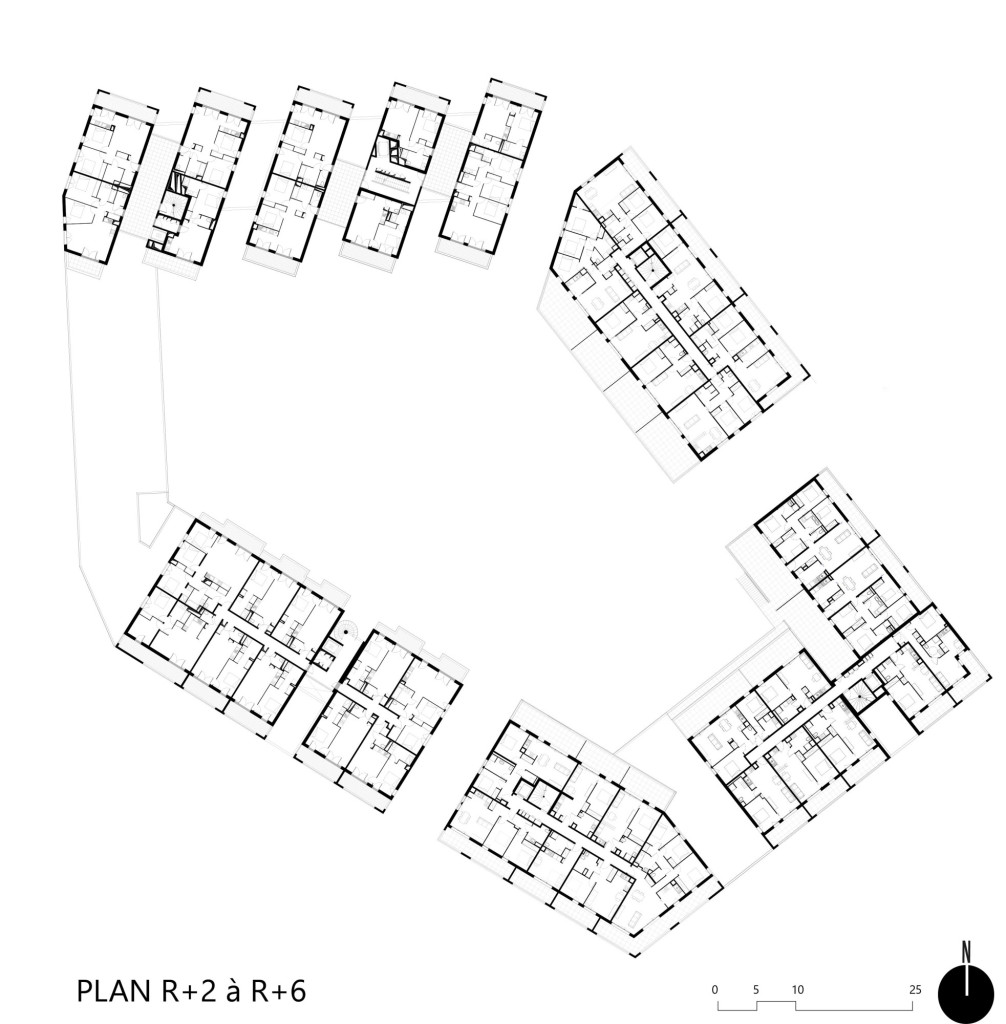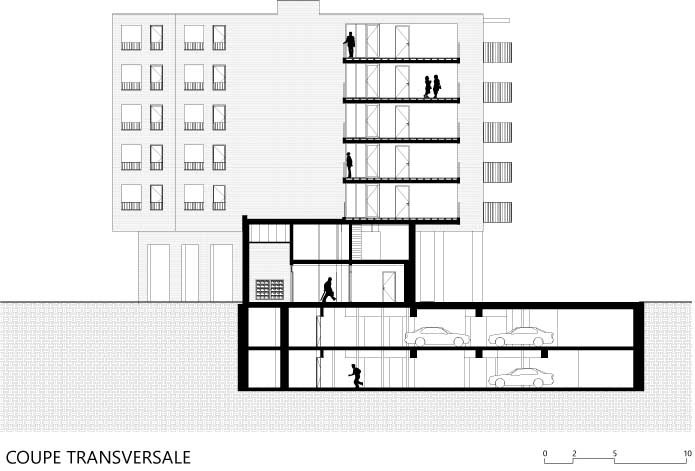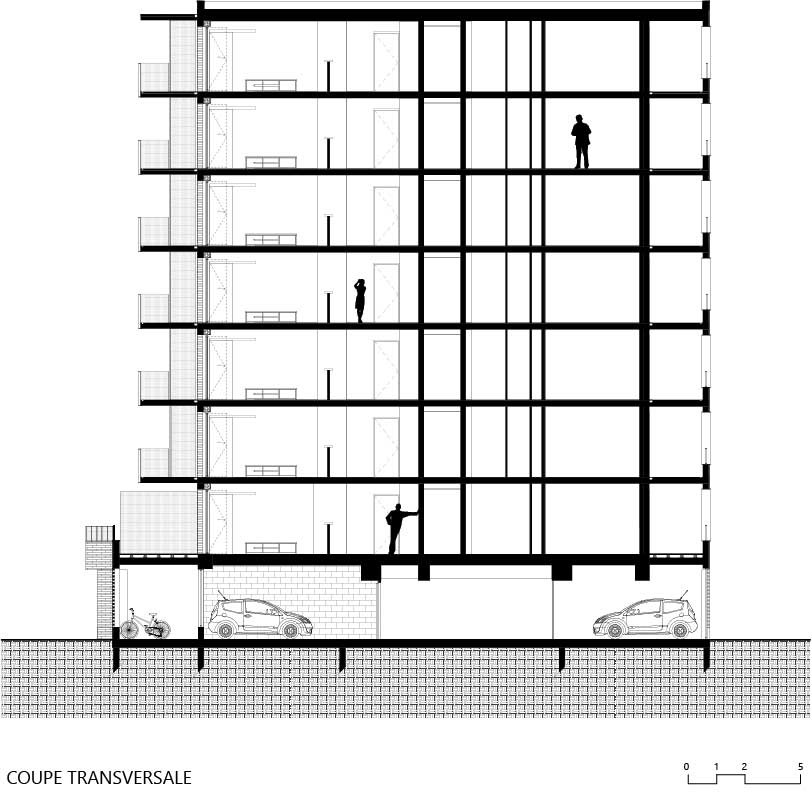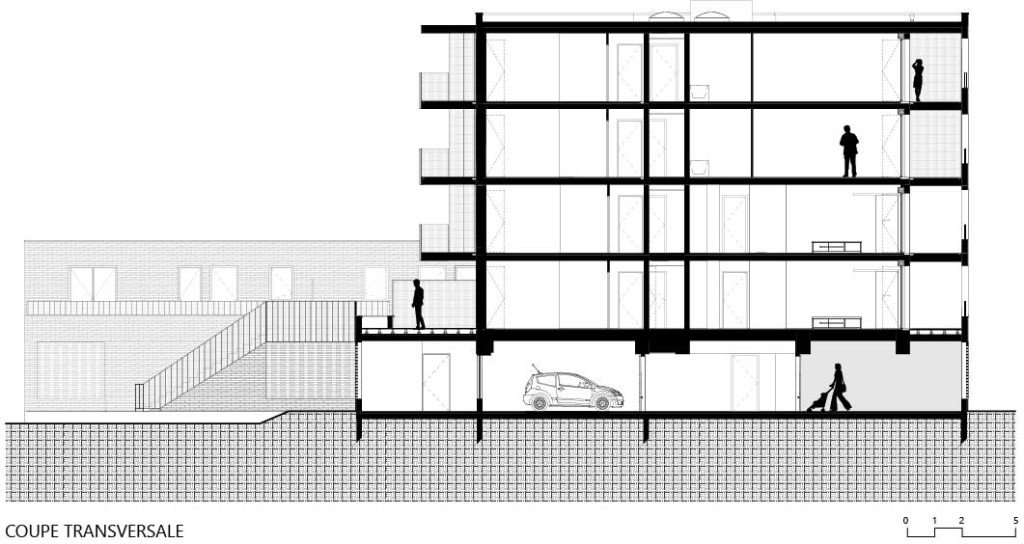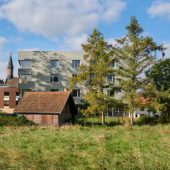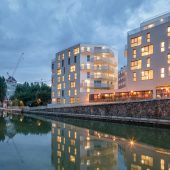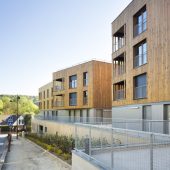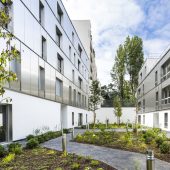Associated Architect : Scalène architectes
Situated in the heart of the ZAC Niel development in Toulouse, France, the collective housing project creates 212 homes with ground floor commercial spaces.
The site, between the river and the hills, has been occupied since Neanderthal times, bringing a tangible richness to the place. It is also a meeting place of diversity, in its social, functional and built forms. This project is the last construction phase of the ZAC Niel development area. The site is in the South of Toulouse, where the Empalot and Saint-Agne quarters meet, close the Garonne river and within Toulouse’s ring road. These quarters are undergoing rapid transformation. In the first phase of work, 427 homes, a care home, a kindergarten, a citizenship centre, a Maison des Associations social centre, the Rectorat education authority office and the Niel garden were delivered.
Several recent operations have been completed and are underway in the development’s three stages. TAA’s intervention at the “Parvis Niel” forecourt is situated along a pedestrian path that links the three sequences. Its built geometrical forms and its fabric of contrasting scales allow it to play the role of enabling articulation: articulation of scales, periods and uses (the project links with Toulouse’s past through the adjacent historic military headquarter building). The intervention is also a place marker.
The surrounding built environment is mixed. The most notable element is the Maison des Associations, the remaining part of the Niel military headquarters, which faces the project site from Guy Hersant square. The rest of the development is composed of residential, Rectorat office, kindergarten and care home buildings, bringing a diversity to the program and its public. The diversity is seen in the built forms and heights, ranging from town houses to small collective residences. The heart of the historic military site has been converted into a big public garden, providing the quarter with a central landscape. The “Charbonnière” plot, formed by the roads Charbonnière and Alfred Rambaud, is a zone designated for future change that will see its suburban proportions take on a more urban shape.
The buildings forming the block rise to between one and eight storeys, in order to adapt to the site’s constraints – both subterranean and neighbouring. The project’s guiding hypothesis is one of creating an urban block capable of adapting to its direct context. The chosen siting creates a continuous public space and a dialogue with the Maison des Associations. This space links the green strip and the Niel garden, joining the Empalot and Saint-Agne quarters. Responding to the site’s technical constraints, the project references the varying scales of its environment, both near and far. The block’s built form makes space for a large planted centre. This private garden is traversed by a shared passage, part of the residence. The passage offers generous viewpoints from the public spaces.
The project proposes a sequence of volumes forming a continuity, while being adapted to the context. Sited on the boundaries, the buildings create a street font — a parvis-facing public façade — and make space for the substantial landscaped hub. The plot is filled by its three built units, separated by openings, either for collective use across the operation, or for the private use of one building.
On Guy Hersant square, the Cour Magenta building, in comb form, projects up to seven storeys, on top of its commercial base level — it is on an urban scale. Positioned as an articulation between the Niel garden and the Empalot Coulée Verte green space, this first volume takes on the role of an urban signal.
On turning into Rambaud road, the project drops to two storeys: one above its ground-level parking. This change in volume — necessary to limit the vertical load, due the proximity of the metro tunnel below — gives a sculptural richness to the block. The project then regains height, at six storeys (Cour Magenta), then eight storeys (Les Fenetras), to propose an urban marker, visible from the ring road and Pech David, marking the end of the urban sequence of the Rectorat and the development. The two volumes are separated by the south entrance passage which assures a certain porosity to the plot. Continuing along Charbonnière road, the buildings of the Fenetras project are staggered above the ground-level parking, at eight, five and then two storeys. This crenelated working of the volumes makes a connection with the formal organisation of the rectorate and care home, and a continuity with the rest of the Niel development. In order to assure a visual porosity relative to the Niel garden, the building is aligned with the Maison des Associations. The connection with the first comb-form volume is also treated using an opening that gives a northern access to the passageway.
The buildings present two distinct facade systems, defining two housing typologies: road-side and garden-side homes. On the garden side, the principle is more domestic, with running balconies of varying depths. These are finished in a light-tone concrete associated with vertical bar railings and micro-perforated sheet metal. The town-side facades follow a resolutely urban approach, with brick skin pierced by loggias of repeating dimensions. Thus, a vertical rhythm develops along the plot’s perimeter, with openings in relation to the neighbouring facades.
The gable walls at the passageway are treated as facades in their own right: at ground level, the brick maintains a visual continuity across the socle. In the above floors, the residences’ windows are associated so as to read as large openings, recalling the dimensions of the loggias. Between the volumes of the combs, the use of a light-tone render allows light into the communal residential spaces of each landing.
The parvis’ commercial ground floor plays its role as a socle, affirming the square’s urban character. The ground floor also houses the plot’s parking spaces, with mashrabiya elements to allow ventilation and natural lighting, while giving the socle a domestic mark. The socle is interrupted by three fissures, opening the view to the plot’s centre from the public space.
By TAILLANDIER ARCHITECTES ASSOCIES
